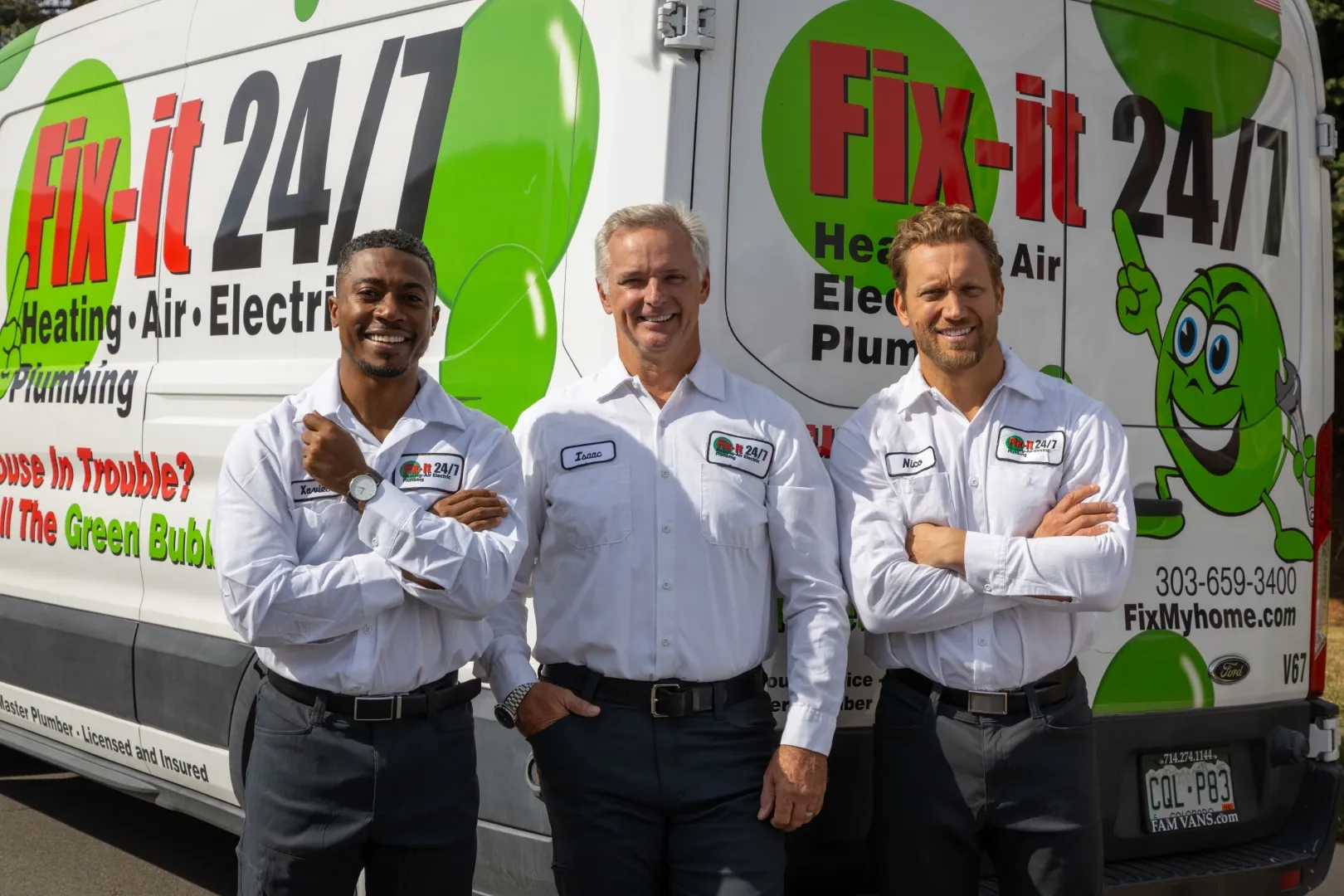.webp)
Denver’s HVAC, Plumbing & Electrical Experts
HVAC, Plumbing & Electrical Services
Fix-it 24/7 has proudly served homeowners across the entire Denver Metro Area since 2013. We service all of your heating, cooling, plumbing, and electrical needs, from routine repairs to full system upgrades. No matter the size or complexity of the job, we’re here to keep your home running safely and efficiently.
At Fix-it 24/7, exceptional customer care is at the core of how we operate. From the moment you call us to the final walkthrough after your repair, installation, or maintenance service, you can expect professionalism, clear communication, and genuine respect for your home.
We came from humble beginnings, having started as just a small family business. And even as we’ve grown, we’ve stayed true to those roots. Every homeowner we serve is treated like part of our extended family - with honesty, empathy, and a commitment to doing the job right the first time.

Our HVAC, Plumbing & Electrical Services
From emergency repairs to full‑system upgrades, Fix-it 24/7 keeps Denver‑area homes running smoothly with reliable HVAC, plumbing and electrical solutions.

Heating
Keep your home warm and energy‑efficient with expert furnace repair, furnace tune‑ups and heating system replacements from our technicians.

Air Conditioning
Stay cool and comfortable with fast AC repair, AC system maintenance, and high-quality AC installations - available around the clock.

Plumbing
From leaky pipes to water‑heater installs, and everything in-between, we handle your plumbing needs quickly and correctly the first time.

Electrical
Our certified electricians deliver safe, code‑compliant repairs, lighting upgrades and new wiring for total peace of mind.
- Electrical Wiring
- Electrical Panel Repair
- Electrical Panel Upgrade
- Lighting Installation
- Ceiling Fan Installation
- Whole Home Surge Protection
- EV Charger Installation
Thousands of Happy Customers






How Can Fix-it 24/7 Help?
Let us know how we can help you and a member of our team will call to schedule your appointment.
Thousands of Colorado homeowners trust Fix-it 24/7 with their plumbing, heating, air conditioning, and electrical needs.
Feel free to click the Call Now button to get started with us today! We look forward to serving you, neighbor!
















